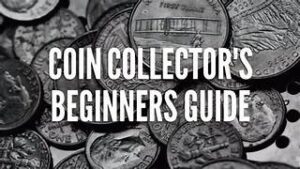Hey there, friend!
We’ve all been there – those moments when misunderstandings cast a temporary shadow on our friendships.
But fear not!
In this article, we’re diving into the art of overcoming misunderstandings among friends.
Buckle up as we explore practical tips to smooth out the bumps in the road and strengthen the bonds that matter most.
1. Communication is Key: The Heartbeat of Healthy Friendships
Picture this: A friendship without communication is like a car without fuel – it won’t get very far.
The foundation of any healthy relationship, especially friendships, lies in open and honest communication.
So, when misunderstandings arise, the first step is to talk it out.
2. Active Listening: The Unsung Hero of Understanding
Ever felt like someone wasn’t really listening to you?
It’s not a great feeling.
Active listening is a powerful tool that goes a long way in resolving misunderstandings.
Ensure you’re not just hearing words but truly understanding the emotions behind them.
3. Empathy: Putting Yourself in Their Shoes
Empathy is the secret sauce of friendship.
When a friend feels understood, the path to resolution becomes smoother.
Put yourself in their shoes, try to see the situation from their perspective, and watch how empathy transforms the dynamics of your friendship.
4. Choose the Right Time and Place: Setting the Stage for Resolution
Timing is everything.
When addressing a misunderstanding, choose a time and place where both of you can focus without distractions.
A calm environment fosters productive conversations and minimizes the risk of escalating tensions.
5. Stay Calm and Collected: Keeping Emotions in Check
Misunderstandings can stir up emotions, but responding in anger or frustration often leads to more problems.
Stay calm and collected during discussions.
It’s okay to express your feelings, but do so in a way that promotes understanding rather than escalating the conflict.
6. Clear Communication: Avoiding Assumptions and Misinterpretations
Assumptions are the breeding ground for misunderstandings.
Be crystal clear in your communication, express your thoughts explicitly, and avoid leaving room for misinterpretations.
Clarity reduces the likelihood of confusion.
7. Forgive and Forget: The Healing Power of Letting Go
To err is human, and friends are no exception.
Once a resolution is reached, practice the art of forgiveness.
Holding onto grudges only prolongs the discomfort.
Embrace the power of letting go and move forward with a clean slate.
8. Find Common Ground: Reinforcing the Bond
Misunderstandings often highlight differences, but friendships thrive on common ground.
Rediscover shared interests, values, and experiences that strengthen your bond.
Celebrate what unites you rather than what sets you apart.
9. Humor as a Healer: Laughter, the Best Medicine
Ever heard the saying, “Laughter is the best medicine”?
It holds true in friendships too.
Injecting humor into conversations can diffuse tension and create a lighthearted atmosphere, making it easier to address serious matters.
10. Set Boundaries: Preserving Personal Space
Sometimes misunderstandings arise from crossing personal boundaries.
Establish clear boundaries within your friendship, ensuring both parties feel respected and comfortable.
Open communication about boundaries prevents future clashes.
11. Learn and Grow Together: Turning Challenges into Opportunities
Every misunderstanding is an opportunity for growth. Instead of dwelling on the problem, focus on the lessons it offers. Discuss how both of you can learn and grow from the experience, turning challenges into stepping stones for a stronger friendship.
12. Apologize When Necessary: The Power of a Sincere Apology
We all make mistakes.
When you’re in the wrong, a sincere apology can work wonders.
Acknowledge your part in the misunderstanding, express genuine remorse, and show your commitment to avoiding similar situations in the future.
13. Seek Mediation if Needed: Bringing in a Neutral Party
In some cases, seeking the help of a neutral third party can be beneficial.
A mediator, such as a mutual friend or a counselor, can provide an unbiased perspective and facilitate constructive communication.
14. Reflect on Your Own Actions: Self-Discovery in Friendships
Take a moment to reflect on your own actions and reactions.
Self-awareness is a powerful tool in resolving misunderstandings.
Understand how your behavior contributes to the situation and be open to self-improvement.
15. Celebrate Differences: Embracing Individuality
Friendships are a beautiful mosaic of diverse personalities.
Celebrate the differences that make each of you unique.
Embracing individuality fosters a more understanding and accepting friendship.
Conclusion
Friendship, like any worthwhile journey, has its share of bumps and turns.
By applying these tips, you’ll be better equipped to navigate the maze of misunderstandings and emerge with a stronger, more resilient bond.
Remember, it’s not about avoiding conflicts but about transforming them into opportunities for growth.
FAQs – Untangling the Threads of Friendship
Q1: How do I know if it’s a misunderstanding or a deeper issue in my friendship?
Distinguishing between a simple misunderstanding and a deeper issue requires open communication.
If the tension persists or recurs, consider discussing your concerns with your friend or seeking the guidance of a neutral party.
Q2: Is it okay to take a break from a friend during a misunderstanding?
Taking a break can provide space for both parties to cool off and gain perspective.
However, communication is crucial. Inform your friend about your need for space and express your intention to revisit the conversation later.
Q3: What if my friend doesn’t want to talk about the misunderstanding?
Respecting your friend’s need for space is important.
Send a message expressing your willingness to talk when they are ready.
Avoid pressuring them and focus on creating an environment where they feel comfortable opening up.
Q4: How can I rebuild trust after a significant misunderstanding?
Rebuilding trust takes time and consistent effort.
Be reliable, communicate openly, and demonstrate through your actions that you are committed to the well-being of the friendship.
Trust is earned through genuine and consistent behavior.
Q5: Are some misunderstandings unsolvable, leading to the end of a friendship?
While some misunderstandings can strain a friendship, not all are unsolvable.
Open communication, empathy, and a willingness to work through issues can often lead to resolution.
However, if a friendship becomes toxic or consistently brings negativity, it may be worth reevaluating its significance in your life.



